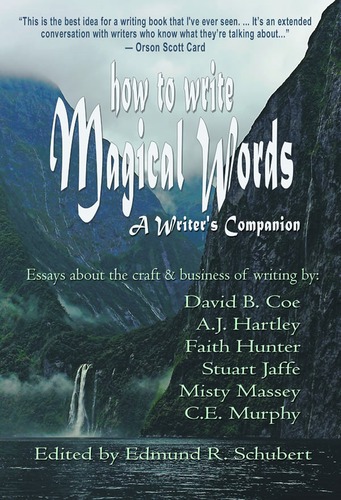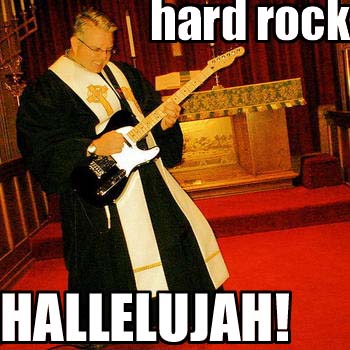 |
| My cheap-o self-made cover |
A side-effect of focusing the conflict was that I realized, for my novel-length work, that the story needs to shift closer to the end, putting that moment of critical choice dead-center, with the inciting event of the story nearer to the one-quarter mark.
Crystallizing an entire novel is hard, because you need character, motivation, setting, conflict, stakes, and voice. In this post, I'm going to show you how I got my pitch for The Mark of Flight down to 35 words.
The blurb that follows is what I've used in my query letter, and what you'll find on the Mark of Flight page above.
The council’s preference for her tractable cousin is Princess Arianna’s biggest worry until her most trusted companion, Markmaster Tashda, kidnaps her to rekindle the centuries-long war with the neighboring kingdom, Centoren. In a fight for her liberty and the preservation of her homeland, Arianna is willing to sacrifice almost anything, but she can't escape an elite squadron of Centoreinian soldiers on her own.
A backwoods Mage and a stuttering stable boy, however, are the last champions she would have asked for. Bay is an Innate Mage who can escape neither the impulse to heal the ravaged borderlands nor the haunting absence of the master who taught him more Magic than anyone else seems to know. Even worse is Shiro, a slave illegally owned by the same inn harboring Tashda’s men. Horrified at the thought of slavery in her kingdom, Arianna swears to stop the unlawful trade if she can ever get home, and promises Shiro will never suffer chains again. Then one of Tashda’s men catches up to them, and the glittering shield that bursts from Shiro’s hand shocks even him with the impossible: the slave is a Markmaster.
Bay departs to lead Tashda astray and Shiro, unable to explain how he got a Mark, refuses to accept his power. Arianna hopes that returning to the castle will solve their problems, but when Shiro is captured protecting her from slave-traders, she faces a choice: break her promise to Shiro and rush home to prepare her kingdom for war, or risk her life to free the Markmaster-slave who gave up everything to save her.Kind of long, right? At 263 words, this blurb is pushing it even for a query letter. However, we can see all the elements of story I listed above.
Character: Princess Arianna
Motivation: liberty and preservation of her homeland
Setting: Rizellen (which, by the fact that she's a princess, we can assume is both feudal and medieval)
Conflict: she has to choose between warning her homeland of approaching war and breaking her promise to Shiro
Stakes: war for her kingdom if she fails to warn them, and life as a slave for Shiro if she fails to rescue him. On both ends, her personal failure to protect what she cares about is evident.
Voice: words like "suffer" "rush" "backwoods" "champion" "ravaged" and "rekindle" hint at the diction of a high fantasy.
The first step was to identify the moment that encapsulates my character's most pivotal choice--the moment she gets off her lazy arse and makes the decision to start DOING something about the situation I stuck her in. For THE MARK OF FLIGHT, that was the moment where Arianna makes her choice between going home to warn her country about Tashda's plans, or rescuing Shiro from slave-traders.
With that in mind, I yanked the final lines from my blurb:
when Shiro is captured protecting her from slave-traders, she faces a choice: break her promise to Shiro and rush home to prepare her kingdom for war, or risk her life to free the Markmaster-slave who gave up everything to save herBy itself, that line is 41 words - already over my limit - so I needed to trim down. Shiro being captured by slave-traders can sort of be implied in the last line: "free the Markmaster-slave". It's probably not necessary to know that he needs to be freed from slavery for a second time. So I end up with this:
(Arianna) faces a choice: break her promise to Shiro and rush home to prepare her kingdom for war, or risk her life to free the Markmaster-slave who gave up everything to save herNow we're talking. At 33 words, I was finally under the limit. But it wasn't ready yet. I knew I'd have to introduce the main character, the setting, and the general predicament she's in before that choice would matter to anyone.
So we would obviously need to know Arianna's name, the fact that she's a princess, and the fact that she's been kidnapped; "Kidnapped Princess Arianna" covers that in three words, but doesn't really set up the action well. So I decided to use the inciting incident (her kidnapping) as a springboard. "When Princess Arianna of Rizellen is kidnapped..."
But then what? What happens? What are the stakes of that? Easy: war. I loved the word "rekindle" from the original query, so I changed it around a bit to show the stakes of the original situation: "When Princess Arianna's kidnapping threatens to rekindle war..."
Now her choice is properly set up, so I trimmed down the verbage at the end and came up with:
When Princess Arianna’s kidnapping threatens to rekindle war, she must choose between warning her kingdom of the enemy’s approach or risking her life to help the slave who gave his freedom to rescue her.34 words! Awesome. But I still wasn't done yet.
If beta readers are critical for your book, they're even more critical for your query, and even more important for your pitch. You want to present it to them and see what works, what's understandable, what isn't understandable, and what might be confusing. Also, beta readers will be able to give you quick tips on things like diction and voice.
I copied my pitch and pasted it into my status on facebook, and asked my friends to critique it.
The first thing to go was the "must choose between ...ing and ...ing". That construction was weak, and got replaced with "must choose: warn ...risk..."
Exactly 35 words, and much stronger. Then another friend suggested I use the word "sacrifice" instead of "gave", which is a much better word-choice, and I decided I liked "faces a difficult choice" better than "must make a choice". In the end, I came up with:When Princess Arianna’s kidnapping threatens to rekindlewar, she must make a choice: warn her kingdom of the enemy’s approach or riskher life to help the slave who gave his freedom to rescue her.
When Princess Arianna's kidnapping threatens to rekindle war, she faces a difficult choice: warn her kingdom of the enemy's approach or risk her life to help the slave who sacrificed his freedom to rescue her.Yeah, it leaves out a lot. It leaves out Bay entirely, leaves out the promise Arianna made, leaves out the fact that Shiro is secretly a Markmaster (and what that is). But here's the thing: those are details. Those are trappings of the world. They're not necessary in a pitch, which is designed to present the most interesting part of the story to the potential agents.
POST YOUR 35-WORD PITCHES BELOW!
Do you have a pitch for your story? Have you participated in any pitch contests? Do you think you could whittle down your pitch to 35 words?















